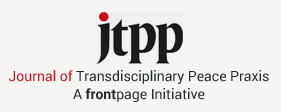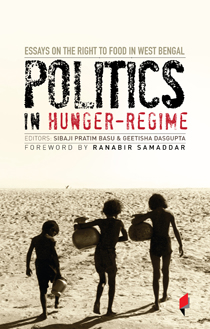Description
Online Buying Price: £ 10.95; INR 245; $ 15.95
In India, even after six decades of independence and planned economy employing ‘pro-poor’ assistance programmes, the hunger-regime has consolidated in many parts of India including the state of West Bengal.
In this book, the researchers examine the population living under the shadow of hunger with particular emphasis on the evolution of Food Movements in West Bengal along with the development of Right to Food as a case inside the court room and the ways it has shaped outside the courts through popular participation in political movements.
While making in-depth analyses of the hunger-regime, the discourse throws light on the recent outrage in the Public Distribution System (Ration-Riots) in West Bengal, and critically examines the status in south Bengal, with particular emphasis on Paschim Medinipur, a district recording starvation deaths, seized the international media attention; the research simultaneously chronicles the true narratives of sufferings and struggle of the people in the Tea Garden region of the northern parts of West Bengal.
In a unique way, the book for the first time in India makes an attempt to link the Right to Food with the Right to Information in a hunger-regime.
Sibaji Pratim Basu is Associate Professor of Political Science at Sree Chaitanya College, West Bengal, India. A regular contributor to academic journals and popular dailies, periodicals and news channels, Sibaji specialises in Modern Indian Political Thought & Politics and Socialist Thought having interest in forced migration in contemporary South Asia and people’s ‘sustainable rights’ in India. His recent publications include The Poet & The Mahatma: Engagement with Nationalism & Internationalism, and an edited volume called, The Fleeing People of South Asia: Selections from Refugee Watch.
Geetisha Dasgupta is a Research Associate at Calcutta Research Group, Kolkata.
Ranabir Samaddar is the Director of the Calcutta Research Group. He has worked extensively on the contemporary issues of justice, human rights, forms of autonomy, forced displacement, partitions, trans-border migration, refugee care and protection, and minority rights and popular democracy in the context of post-colonial nationalism with special reference to South Asia. He is also the editor-in-chief of the South Asia Peace Studies Series. His current work is on theories and practices of dialogue, a question crucial to the politics of justice and reconciliation. His recent publication is the critically acclaimed two-volume work, titled, The Materiality of Politics (2007).
Contents
Acronyms and Abbreviations
Foreword by Ranabir Samaddar
Acknowledgements
Introduction by Sibaji Pratim Basu & Geetisha Dasgupta
Chapter 1
Food Crisis, Right to Food, and Popular Politics in West Bengal
Kumar Rana
Chapter 2
Whither Right to Food
Geetisha Dasgupta
Chapter 3
The PDS Outrage in West Bengal
Manisha Banerjee
Chapter 4
Right to Food in West Midnapore District
Geetisha Dasgupta
Chapter 5
Right to Food: Adequate Laws, Inadequate Will and Optimistic Campaigns
Ruchira Goswami
Chapter 6
Right to Information in a Hunger-regime
Sibaji Pratim Basu
Epilogue by Pradeep Bhargava
Bibliography
Contributors
Pradeep Bhargava is Professor and Director, Govind Ballabh Pant Social Science Institute, Allahabad, India. Engaged in policy dialogue with the governments, Bhargava also interacts with Civil Society. He is presently Advisor to the Commissioners of the Supreme Court of India in the PUCL Case on Right to Food.
Kumar Rana is a Senior Research Associate with the Pratichi Trust, Kolkata and Santiniketan, India.
Ruchira Goswami, an MA in Human Rights, is a Lecturer, Department of Sociology, West Bengal National University of Juridical Sciences, Kolkata, India.
Manisha Banerjee, a social activist, is involved in the ongoing struggles for rights of the minorities and the other oppressed castes in the state of West Bengal.





